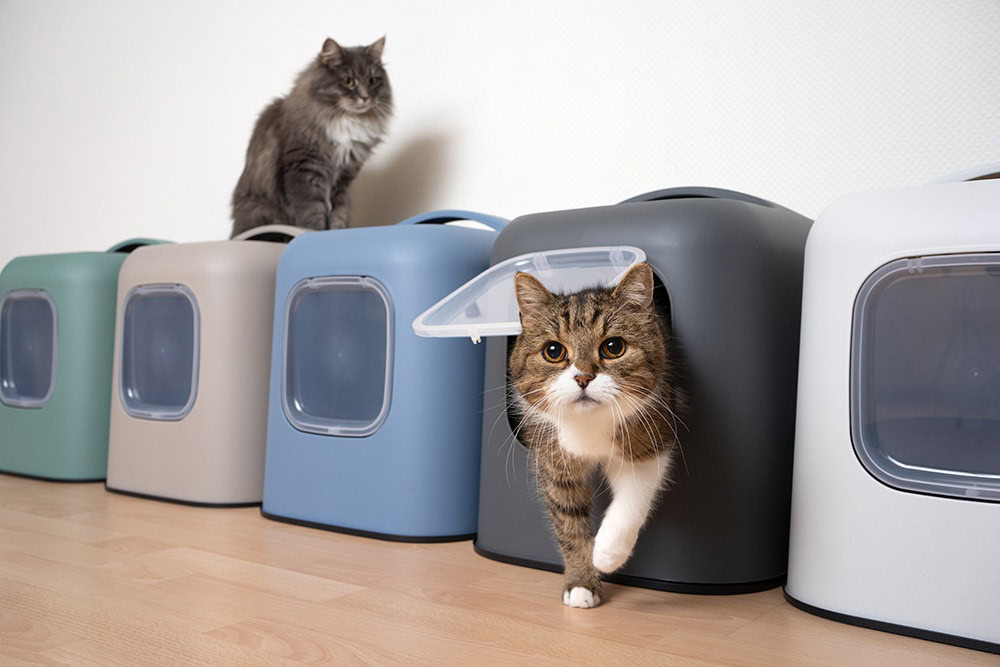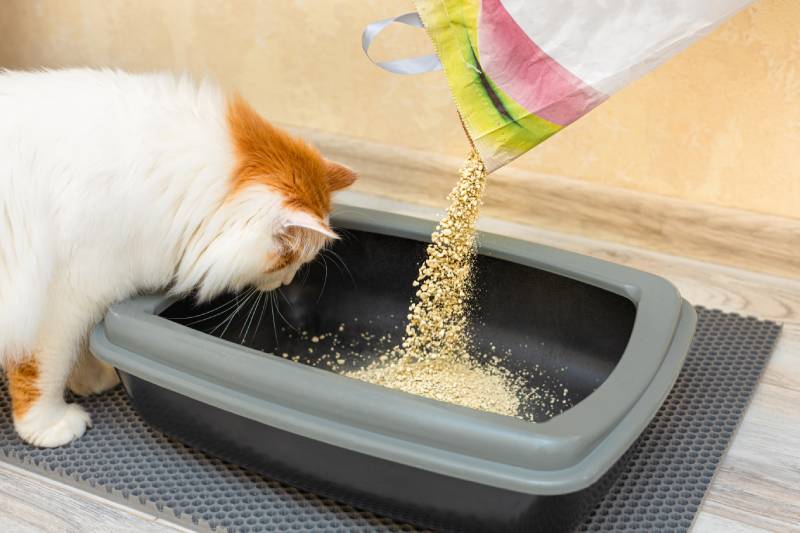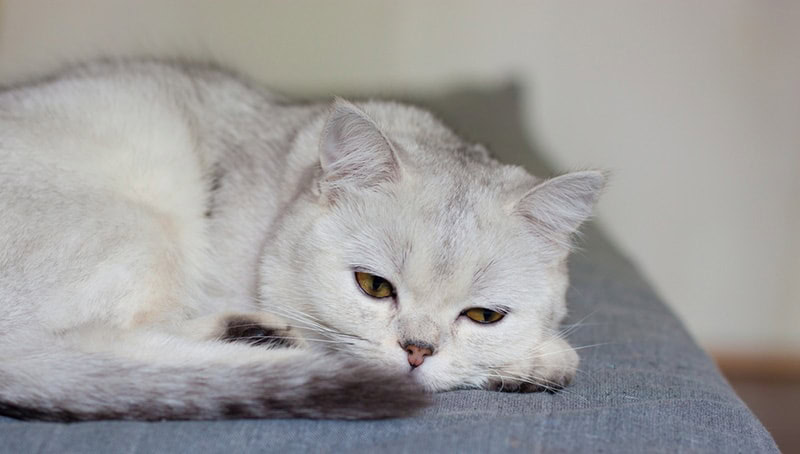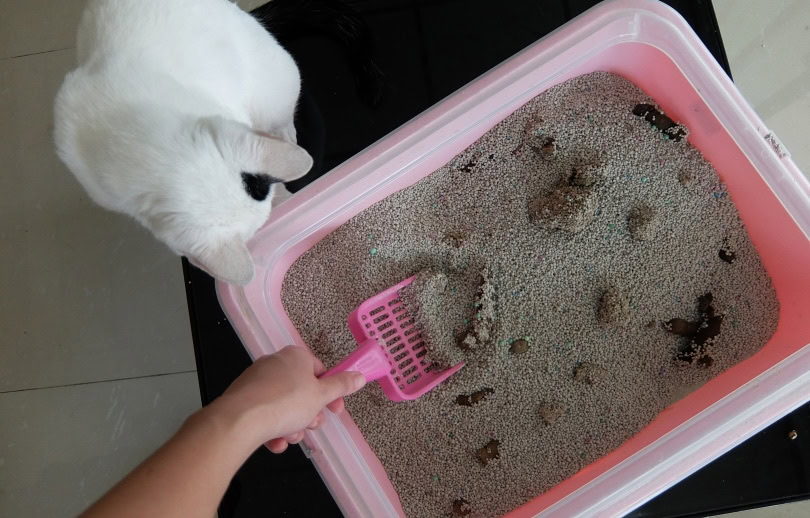Cat litter has attractants added to it to entice cats, especially those with litter box problems, to spend time urinating and defecating in the litter box rather than elsewhere. Although there is limited research on the effectiveness of cat litter attractants, they do appear to be effective for some cats.
Before trying litter attractants, consult with your veterinarian. Litter box avoidance or other changes in behavior related to urination or defecation are often signs that your cat is not feeling well. If your cat is not urinating normally due to a health problem, such as infection, illness, or stress from using the litter box, attractants will not help.
If your cat has been given the all-clear by your vet and has no signs of a medical problem causing her to misuse the litter box, using a cat litter attractant can encourage your cat to use the litter box again.

reaserch result
A 2019 study to evaluate the effectiveness of certain attractants found that cats urinated more frequently in plant-based cat litter treated with attractants than in untreated plant-based cat litter.1
Although the cats were familiar with clay cat litter, the researchers were unsure whether they had experience with vegetable litter, so they decided that using natural cat litter would be a better material to test, as cats would not be biased by experience with clay products.
The study also found that cats preferred clean litter boxes near a wall rather than boxes farther away. This is the only study to focus on the effects of litter attractants, but the finding that most cats preferred litter boxes with attractants may encourage healthy cats to use the litter box instead of the carpet to litter.


What are litter attractants?
Cat litter attractants are additives that make the cat litter box more attractive. Some products simply absorb odors and don’t have any added fragrance, while others use herbs such as catnip to attract cats to the litter. You can also buy cat litter with attractants in it. We’ll explain each type in more detail below.
Deodorants
Cats prefer a clean litter box to a dirty one, especially for solids. To make the litter box more attractive, it is important to remove any excrement or caked cat litter. If the litter box is not clean, the attractant will not work.
Strong-scented deodorizers can be irritating to some cats, but there are some products that contain only baking soda, which is unlikely to be unpleasant for your cat and will make the litter box more comfortable by reducing odors.

Sprays and powders
Commercial sprays and powders are designed to attract cats and encourage them to use the litter box. The ingredients vary, but we recommend using herbal attractants such as catnip. If the ingredients contain chemical fragrances or additives, it is unclear whether they are safe for cats.
DIY Additives
You can also sprinkle dried catnip directly on the litter to attract cats, or spray the sides of the litter box with catnip spray. Valerian and silver vine powder are also safe to add to the litter box.

Commercially available litter
You can buy commercial cat litter that already has attractants added. It comes in several types, including clumping, non-clumping, and biodegradable made from walnut shells.
There are unscented and scented products, but scented cat litters can be too strong for cats with sensitive noses. Catnip and other cat-safe herbs are inexpensive, so buying regular unscented cat litter and adding natural attractants is more cost-effective than buying a more expensive product with attractants.

What causes cat litter box problems?
Cat litter box problems can be linked to a variety of causes, including illness or stress. For example, cats with mobility issues or joint problems may have difficulty getting in and out of a high-sided litter box and may choose to eliminate on the floor instead.
Cats with urinary problems often urinate in a cool, smooth place like the bathtub. Changes in litter box behavior can be a sign of stress or anxiety, and some cats may have stress-related cystitis. Other illnesses that can cause litter box problems include hyperthyroidism, kidney disease, and bladder stones.
Kidney disease or diabetes can cause your cat to urinate more frequently, and if you don’t keep the litter box clean, your cat will find an easier place to urinate, like the carpet.


Is there a way to encourage my cat to return to the litter box?
Once your cat has been examined by your vet and given a clean bill of health, try one of the suggestions below to encourage your cat to use the litter box.
We recommend trying these out before using attractants, as if one solves the problem you won’t need to spend money on herbs or commercial products.
position
Most cats prefer to use the litter box in a quiet place where they have privacy, and older pets may have trouble climbing the stairs or reaching a litter box that’s far away from their favorite spot. To give your cat easy access to the litter box, it’s best to have at least one litter box on each floor of your home.
Place the litter box in a room free of noisy appliances and away from your cat’s food and water bowls – cats don’t like to litter box near their food.

Toilet Number
A good rule of thumb for litter boxes is one for each cat, plus a spare. This reduces stress by reducing resource competition between cats. Resource guarding usually relates to food and toys, but can also include litter boxes.
If you have multiple cats and you frequently find urine or feces on the floor, one of your cats may be bullying the others into using the litter box. Adding additional litter boxes and spacing them out around the house may encourage the bullied cat to feel more comfortable using the litter box.
Cleanliness
Cats have a keen sense of smell and strict standards when it comes to litter box cleanliness. Cat litter should be scooped daily, although particularly sensitive cats may prefer to scoop twice a day, and the litter box should be washed weekly with soap and water, especially if you have more than one cat.

Litter box design and litter selection
Some cats prefer a large, wide, open litter box, while others prefer an enclosed one for privacy. Cats with mobility issues have difficulty getting into a top-entry litter box with high sides, so they need a model with a low entrance.
Some cats have strong preferences for litter textures. Granular litter products are popular, but your cat may prefer crystal or recycled paper litter. Having a few litter boxes with different litter materials is an easy way to find out if your cat has a litter preference.
Stress reduction
A cat that is anxious or stressed may show a number of signs. Some stressed cats may become withdrawn or sleep more, while excessive grooming and litter box problems are common. If you see these signs, you should take your cat to your vet who can provide advice on reducing stress if it is a behavioural problem.
But if you think the problem is environmental, you can also make your home cat-friendly. If you have more than one cat, observe their interactions with each other. Do they sleep and groom each other? If so, it’s unlikely that the other cat is causing stress.
If not, one of your cats may be stressing the other out. To reduce cat stress, provide multiple feeding, watering, sleeping and litter box areas so that your cats can avoid each other. You can also provide separate toys, scratching posts and cat trees for each cat to reduce resource-guarding behavior.
Odor control
Even if you keep your cat’s litter box clean, you may still notice cat odors and stains lingering around your home. Hepper Advanced Bioenzyme Pet Stain and Odor Removal Spray & Garbage deodorizerit can even tackle tough pet stains and litter box odors!
At PangoVet, we have admired Hepper for many years and have decided to acquire controlling ownership so we can benefit from the design excellence of this great company.

Conclusion
Cat litter attractants can encourage your cat to urinate and defecate in the litter box instead of on the floor, but you may need to make some changes in your home before using them. There are a number of reasons why cats may avoid the litter box or defecate outside it, including stress or illness. If you notice any changes in their toilet habits, it is essential to see your vet.
Your cat may not use the litter box because of its location, shape or the type of litter. There is evidence that cats tend to prefer to urinate in litter that has been treated with attractants. However, there is also evidence that keeping the litter box clean, conveniently located and providing a type of litter that your cat’s paws and nose enjoy can also help.
Featured image credit: Alexandra Morosanu, Shutterstock





